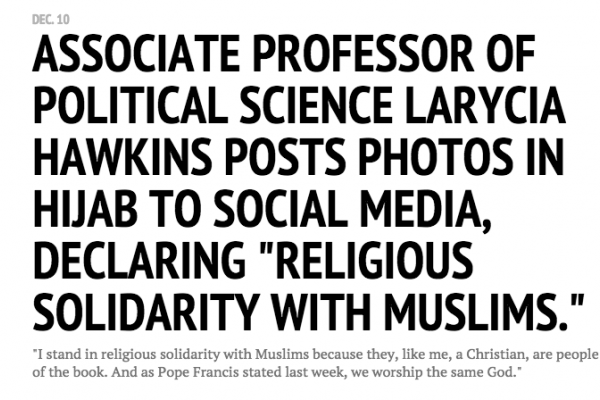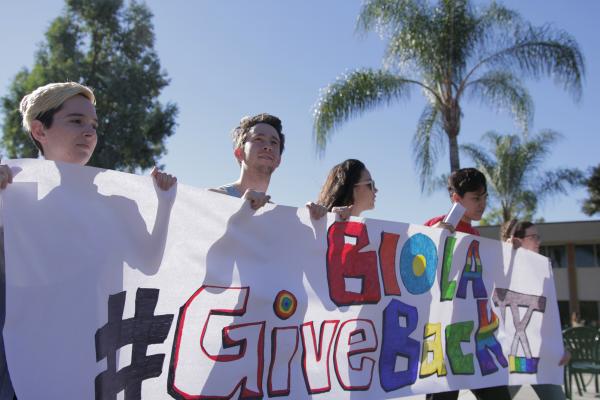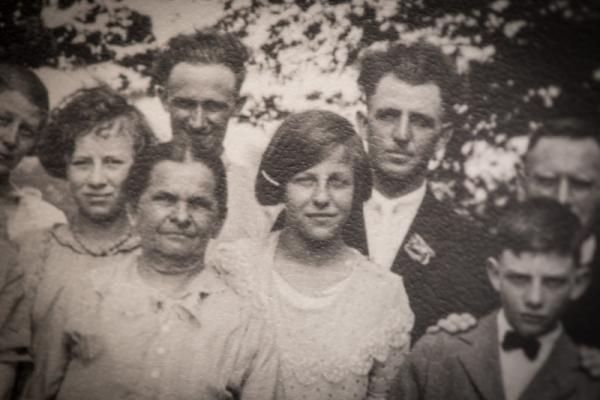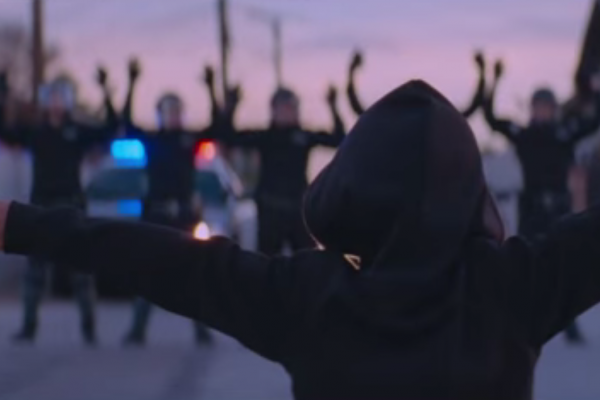How did Wheaton get here? Here are the highlights (and more than one little-publicized anecdote) into one timeline.
On Feb. 9, the day after more than 200 Baylor students, alumni, faculty, and staff gathered in front of university President Ken Starr’s campus residence for a candlelight vigil honoring the community’s sexual assault survivors, Starr released a statement on the school’s website saying, “We hear you loud and clear.”
Starr was not present for the vigil — according to an inquiry to the media communications office, he was in Washington, D.C., on university business.
His brief statement read: “You want us to continue to improve. And you want definitive, responsible actions after we receive the insights and recommendations from Pepper Hamilton. You have my word on both.”
Students at Biola University and Oklahoma Baptist University assembled Feb. 9 in order to protest their colleges’ requests to be exempt from Title IX requirements that prohibit discrimination on the basis of sexual orientation and gender identity. As many as 60 Christian schools have submitted similar requests since 2014, when the Justice Department announced that Title IX protections extended to transgender students.
Even people who knew Anna Kurzweil well wouldn’t have guessed she was a millionaire. She grew up on a farm outside of Kansas City, the youngest of eight children, and entered the convent for a few years but spent most of her life as a schoolteacher. She earned less than $20,000 a year, cared for her elderly mother, and eventually retired — on a pension of less than $1,000 a month. She died in 2012, just shy of her 101st birthday.
Election years are tough on science and numbers. Everywhere you go yet another politician or one of their supporters is citing numbers, throwing them out there, claiming their support, and reminding everyone that if we just followed the evidence we’d all end up agreeing with them. Their opponents, of course, claim the same thing. This is bad enough in formal debates, but when you wade in to Facebook or Twitter, it gets downright overwhelming. Everyone has “science on their side” or “the numbers back them up.”
Hawkins' act of solidarity with scapegoated people of Islamic faith — wearing a hijab on campus — and her Facebook statement that Christians and Muslims worship the same God struck a nerve within Wheaton College’s white, politically conservative administration. Ultimately, the public act of solidarity challenged the assumption of white, male, Christian supremacy — the assumption that whites, men, and Christians are more human than anyone else.
Rape. Domestic Violence. Acid Burnings. Female Infanticide. Human Trafficking. Emotional Abuse. Sexual Harassment. Genital Mutilation.
These are just a few forms of sexual and gender-based violence (SGBV) that women and girls endure on a daily basis. But these assaults on the human spirit and sacred worth of women and girls will not have the last word.
How many centuries were our black brothers and sisters relegated to the position of audience — the thrills of competitive sports, television and movie screens, even the petty dramas of middle class servitude demanding their attention? We gave them the role of witness to our stories without so much as a thought that they might have their own. Today those stories are rising to be told and though we may be the villain or not so much as a paragraph, if we listen, it will be our great joy to learn all that we have missed.
Seeing Bartholomew and Mary’s trust in the risen Christ made me want to raise my hands and trust him with all of my hopes. If Christ could master death, what limits could there be to what he could do with them?
Seeing the gracious way in which Jesus shows Thomas his wounds, provides fish for his followers, and restores Peter made me remember all the ways he’s lovingly cared for me. He’s not just a vague myth or a good idea — he’s alive.
Steinem says that from traveling so much, she had an opportunity to hear from so many different groups of people — proving that, “Hate generalizes, love specifies.’” And that’s one of the theories of social change, right? Hearing personal stories brings a better sense of understanding that can get more people on board and connected.








